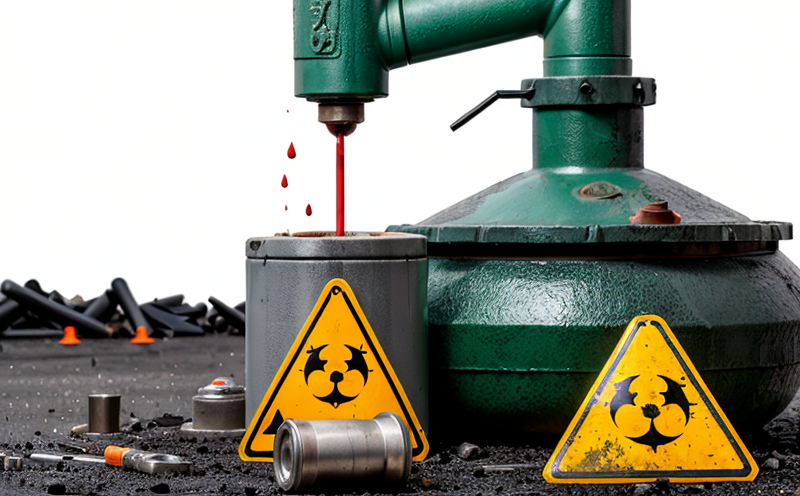Ethanol Hazardous Residue Testing
In the realm of chemical testing, particularly within the sector of toxic and hazardous substance testing, ensuring compliance with stringent regulations is paramount. Ethanol hazardous residue testing is a critical component in this domain. This service focuses on identifying and quantifying hazardous residues present in ethanol-based products to prevent potential health risks and environmental impacts.
Eurolab’s expertise in this area ensures that the testing process adheres to international standards such as ISO 17025, ensuring accuracy and reliability of results. The primary goal is to provide comprehensive data on hazardous residues present, which can significantly impact product safety for consumers and workers.
The methodology typically involves a multi-step approach: sample collection, preparation, analysis using advanced analytical techniques like gas chromatography, and finally, interpretation of the results against established thresholds. This service caters to various sectors including pharmaceuticals, food & beverage, chemical manufacturing, and environmental protection.
When considering the broader context of hazardous substance testing in ethanol, it is crucial to understand that these residues can lead to severe health issues such as liver damage, neurological disorders, and cancer. Given this high stakes environment, Eurolab’s stringent protocols ensure that any trace of harmful substances are detected and reported accurately.
The process begins with meticulous sample preparation which involves thorough cleaning and preservation to maintain the integrity of the sample throughout analysis. Once prepared, ethanol samples undergo rigorous testing using state-of-the-art analytical equipment. The data obtained is then meticulously analyzed against internationally recognized standards like ISO 18459-2 for alcohol-based products.
Our service also includes providing detailed reports that highlight the presence of hazardous residues along with their concentrations. These insights are invaluable for quality managers and compliance officers looking to ensure product safety and meet regulatory requirements.
| Instrumentation | Description | Purpose |
|---|---|---|
| Gas Chromatograph (GC) | An advanced analytical tool that separates components of a mixture. | To analyze the composition and identify hazardous residues in ethanol. |
| Infrared Spectrometer | A spectroscopic technique used to determine the chemical structure or composition of matter. | For verifying the presence of specific chemicals that could be harmful if present above certain limits. |
The use of such sophisticated instruments guarantees precision and reliability in our testing procedures. Moreover, these tests are conducted under controlled conditions to ensure consistent results across multiple samples.
Eurolab Advantages
- Comprehensive Knowledge Base: Eurolab’s team comprises experts with deep understanding of hazardous substance regulations.
- International Standards Compliance: Adherence to ISO and ASTM standards ensures accuracy and reliability.
- State-of-the-Art Equipment: Utilizing the latest technology for precise analysis.
Why Choose This Test
The importance of ethanol hazardous residue testing cannot be overstated. By choosing this service, organizations can protect public health and safety while complying with stringent legal requirements. It allows companies to maintain a high standard of product quality, which is essential for maintaining consumer trust.
For instance, pharmaceutical manufacturers need to ensure that their products are free from hazardous residues as even trace amounts could have severe implications on patient health. Similarly, food & beverage producers must adhere to strict standards to avoid any contamination that might affect the integrity of their brand.
The rigorous testing process not only helps in maintaining compliance but also provides valuable insights into product safety and potential areas for improvement. This proactive approach can significantly reduce risks associated with non-compliance penalties or recalls due to unsafe products.
Use Cases and Application Examples
| Sector | Application Example |
|---|---|
| Pharmaceutical Industry | Testing ethanol used in drug formulations to ensure no harmful residues are present. |
| Food & Beverage Sector | Verification of ethanol in alcoholic beverages for compliance with labeling laws. |
In addition to these sectors, Eurolab also serves chemical manufacturers who require regular testing to ensure their products do not contain hazardous residues. Environmental protection agencies often utilize our services to monitor the release of harmful substances into water bodies and soil from ethanol-based industrial processes.





